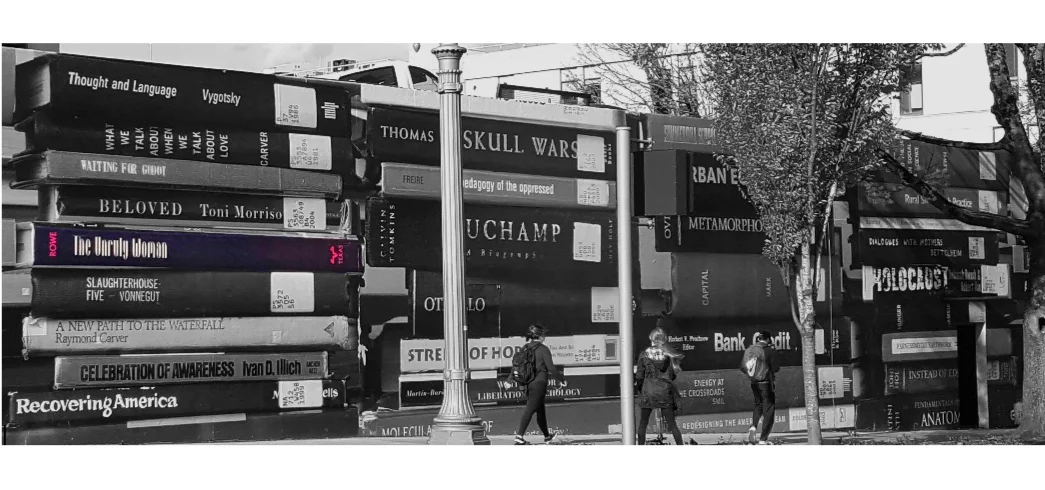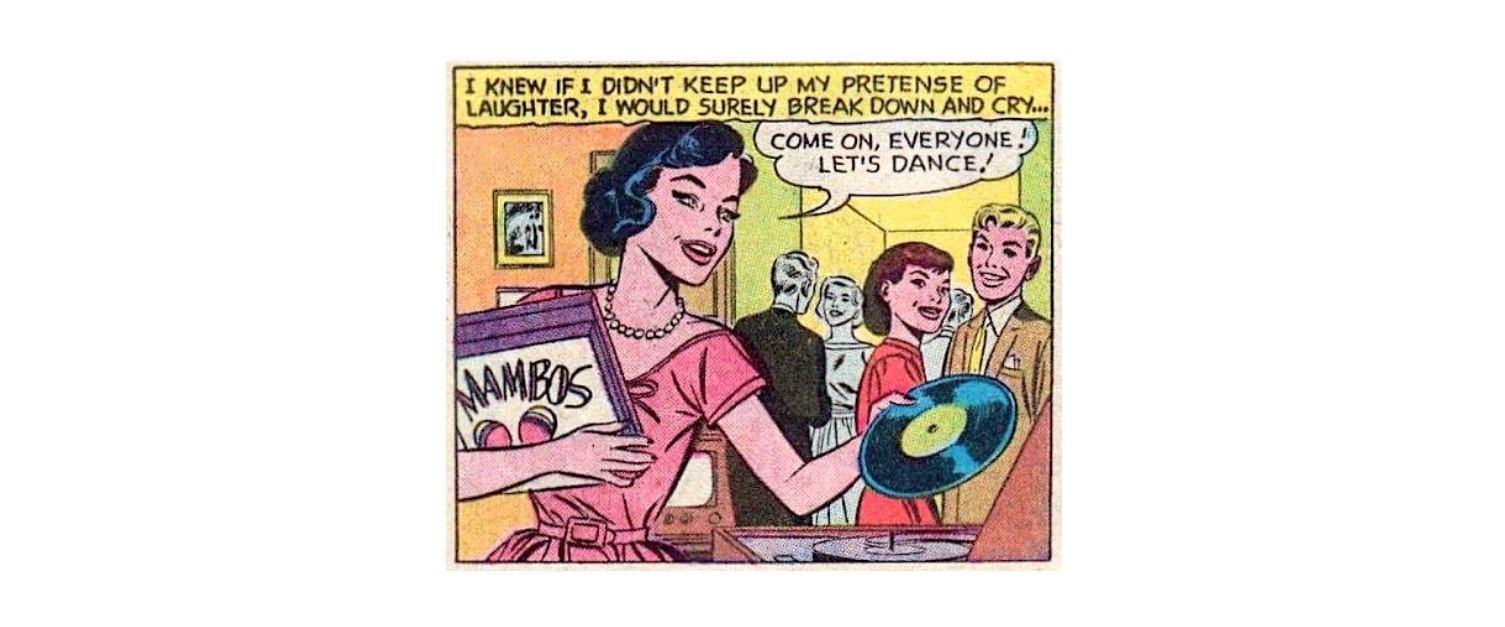Scholarship
Scholarship
Before her career in academia, Kathleen Rowe Karlyn worked as a newspaper reporter and editor, where she was trained to find interesting stories to tell with engaging prose written on deadline. She has continued to seek those stories in her scholarship, which has often focused on the ways figures and texts that elicit intense and often polarizing responses—from Roseanne to Wonder Woman—yield insights into the cultures that produce and consume them.
Find her on Google Scholar
“Kathleen Rowe Karlyn is an internationally renowned feminist media scholar. Her research and many seminal publications have had a significant impact on the fields of film and television studies, gender studies, and cultural studies. Professor Karlyn hired, mentored, and guided countless graduate students who now have robust professional careers both in and out of academia. All the while, she remained at the cutting edge of a politically engaged scholarship in feminist media studies.” — Julia Lesage, Jump Cut
“Rowe’s 2011 book (as Kathleen Rowe Karlyn) returns to the relationship between comedy and melodrama as the pivoting modes of telling women’s stories. Unruly Girls, Unrepentant Mothers: Redefining Feminism On Screen speaks to the very heart of feminism itself by focusing on mothers and daughters—that is, acknowledging feminism as a history of perpetual bickering and passionate connections.” — Linda Mizejewski, Jump Cut
Books
The Unruly Woman: Gender and the Genres of Laughter
THE UNIVERSITY OF TEXAS PRESS | 1995
Unruly women have been making a spectacle of themselves in film and on television from Mae West to Roseanne Arnold. In this groundbreaking work, Kathleen Rowe explores how the unruly woman—often a voluptuous, noisy, joke-making rebel or "woman on top"—uses humor and excess to undermine patriarchal norms and authority.
At the heart of the book are detailed analyses of two highly successful unruly women—the comedian Roseanne Arnold and the Muppet Miss Piggy. Putting these two figures in a deeper cultural perspective, Rowe also examines the evolution of romantic film comedy from the classical Hollywood period to the present, showing how the comedic roles of actresses such as Katharine Hepburn, Barbara Stanwyck, and Marilyn Monroe offered an alternative, empowered image of women that differed sharply from the "suffering heroine" portrayed in classical melodramas.
Co-winner of Popular Culture/American Cultural Association’s Emily Toth Award for Best Single-authored feminist study of popular culture
Nominated for MLA First Book Award
“Kathleen Rowe Karlyn’s trope of the unruly woman spurred a dramatic turnaround not just in scholarship on women’s comedy but in feminist film theory, nudging its focus away from fetishized female spectacle and toward funny women willing to make a spectacle of themselves…” — Linda Mizejewski
Unruly Girls, Unrepentant Mothers: Redefining Feminism on Screen
THE UNIVERSITY OF TEXAS PRESS | 2010
Since the 1990s, when Reviving Ophelia became a best seller and "Girl Power" a familiar anthem, girls have assumed new visibility in the culture. Yet in asserting their new power, young women have redefined femininity in ways that have often mystified their mothers. They have also largely disavowed feminism, even though their new influence is a likely legacy of feminism's Second Wave. At the same time, popular culture has persisted in idealizing, demonizing, or simply erasing mothers, rarely depicting them in strong and loving relationships with their daughters.
Unruly Girls, Unrepentent Mothers, a companion to Kathleen Rowe Karlyn's groundbreaking work, The Unruly Woman, studies the ways popular culture and current debates within and about feminism inform each other. Surveying a range of films and television shows that have defined girls in the postfeminist era—from Titanic and My So-Called Life to Scream and The Devil Wears Prada, and from Love and Basketball to Ugly Betty—Karlyn explores the ways class, race, and generational conflicts have shaped both Girl Culture and feminism's Third Wave. Tying feminism's internal conflicts to negative attitudes toward mothers in the social world, she asks whether today's seemingly materialistic and apolitical girls, inspired by such real and fictional figures as the Spice Girls and Buffy the Vampire Slayer, have turned their backs on the feminism of their mothers or are redefining unruliness for a new age.
“This is a remarkable and deeply trenchant book, absolutely immersed in the cultural phenomenon it seeks to examine. Karlyn is a superb writer, and this lavishly illustrated, deeply thoughtful volume is a significant contribution to the existing literature on the subject.” — Choice
“Unruly Girls, Unrepentant Mothers: Redefining Feminism On Screen speaks to the very heart of feminism itself by focusing on mothers and daughters—that is, acknowledging feminism as a history of perpetual bickering and passionate connections.” — Linda Mizejewski
Selected Writings
"Wonder Women: Women’s Tears, and Why They Matter"
“ …as we fight back tears of rage at injustice in any form, let’s also welcome tears that speak to our strength and solidarity whenever we see women insisting on their right to live as their most alive selves, fighting what stands in their way or the way of others, with whatever weapons they have at hand, whether magic bracelets, wit or the simple refusal to shut up and go away.”
Jump Cut | 2018
Hysterical! | UNIVERSITY OF TEXAS PRESS, 2017
Winner of the 2017 Susan Koppelman Award for the Best Anthology, Multi-Authored, or Edited Book in Feminist Studies
"Foreword" by Kathleen Rowe Karlyn
“Studying comedy has allowed me to spend time in the company of others, both real and imaginary, whose work has enriched my own and whose presence in my life has made it better.”
"Comedy, Melodrama and Gender: Theorizing the Genres of Laughter"
“Making fun of and out of inflated and self-deluded notions of heroic masculinity, romantic comedy is often structured by gender inversion, a disruption of the social hierarchy of male over female through what might be called the topos of the unruly woman or the ‘woman on top.’”
Screening Genders | RUTGERS UNIVERSITY PRESS, 2008
"Film as Cultural Antidote: Thirteen and the Maternal Melodrama"
“This is the stuff of melodrama, and Thirteen finally offers melodrama—especially the maternal melodrama—as an antidote to the poisons it depicts. In a cinematic environment which has banished sympathetic mothers from the screen for several decades, Thirteen’s use of melodrama enables it to foreground its central concerns and its simple but urgent message: we may no longer believe that children are innocent, or that they ever were.”
Feminist Media Studies | 2006
"'Too Close for Comfort': American Beauty and the Incest Motif"
“Whenever a film or cultural narrative centers on a midlife male, a young girl who arouses his sexual or intense proprietary interest, and a mother who is missing or otherwise characterized as inadequate, the incest theme is likely to be lurking in the background. This article will examine how the motif of father-daughter incest has emerged as a response to three cultural currents.”
Cinema Journal | 2004
"Scream, Popular Culture, and Feminism's Third Wave: 'I'm Not My Mother'"
“The Scream films are not unambiguous treatises on feminism and sexual politics. Like all popular culture texts, they are riddled with contradictions which account for their emotional power and appeal. These contradictions, however, also beg careful analysis…”
Genders | 2003












